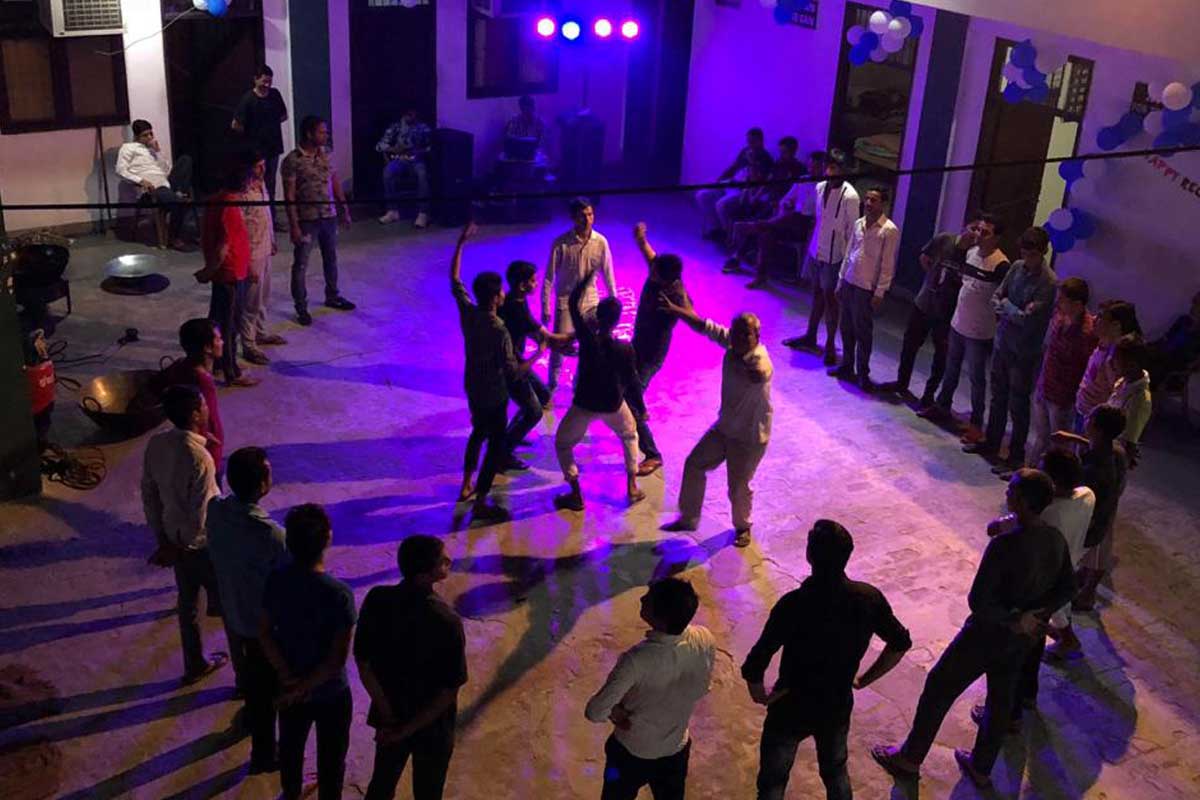Exploring Group Therapy Models for Addiction Recovery

Strong 8k brings an ultra-HD IPTV experience to your living room and your pocket.
Group therapy has emerged as a cornerstone in addiction recovery programs, offering individuals battling substance abuse a supportive environment to heal and grow. With a myriad of models available, each tailored to specific needs and preferences, individuals can find solace and empowerment in their journey towards sobriety. In this comprehensive guide, we delve into five prominent group therapy models, shedding light on their methodologies, efficacy, and suitability for diverse populations seeking recovery from addiction.
Maximizing Recovery Potential: The Role of Inpatient Rehab Coverage
Inpatient rehab coverage serves as a cornerstone in the journey towards recovery from substance abuse, offering individuals access to vital resources and support. This comprehensive coverage encompasses a spectrum of services, including detoxification, medical supervision, therapeutic interventions, and post-rehabilitation care. By alleviating the financial burden associated with treatment, inpatient rehab coverage ensures that individuals can focus solely on their recovery journey without worrying about excessive costs. Moreover, these programs emphasize a holistic approach to healing, addressing not only the physical aspects of addiction but also the underlying emotional and psychological factors.
Luxury rehab centers further emphasize this holistic approach by providing a serene environment, personalized treatment plans, and access to top-tier amenities. Supported by dedicated healthcare professionals and the resources of inpatient rehab coverage, individuals are empowered to confront their addiction, develop essential coping skills, and lay the foundation for a life of sustained sobriety.
The 12-Step Facilitation Approach: A Traditional Path to Sobriety
The 12-Step facilitation approach, pioneered by Alcoholics Anonymous (AA), remains one of the most widely recognized and utilized models in addiction recovery. Rooted in spiritual principles and peer support, this model encourages individuals to surrender to a higher power, take moral inventory, make amends, and offer support to others struggling with addiction. Meetings typically involve sharing personal experiences, receiving mentorship from sponsors, and fostering a sense of community. While some may find solace in its structured format and emphasis on spirituality, others may seek alternative approaches that align more closely with their beliefs and values.
Cognitive-Behavioral Therapy (CBT): Rewiring Thoughts and Behaviors
Cognitive-Behavioral Therapy (CBT) has gained traction as a highly effective model for addiction recovery, focusing on identifying and modifying maladaptive thoughts and behaviors. By teaching individuals coping strategies, problem-solving skills, and relapse prevention techniques, CBT empowers participants to challenge distorted thinking patterns and develop healthier habits. Group sessions often involve skill-building exercises, role-playing scenarios, and homework assignments to reinforce learning. This evidence-based approach appeals to individuals seeking practical tools to manage cravings, navigate triggers, and cultivate resilience on their path to long-term sobriety.
Motivational Interviewing (MI): Fostering Intrinsic Drive for Change
Motivational Interviewing (MI) offers a collaborative and client-centered approach to addiction treatment, emphasizing empathy, autonomy, and intrinsic motivation. Through open-ended questions, reflective listening, and affirmations, therapists help individuals explore their ambivalence towards change and unearth their underlying motivations for recovery. Group settings provide a platform for peer support, accountability, and collective problem-solving. By nurturing a nonjudgmental atmosphere where participants feel heard and empowered, MI facilitates meaningful engagement in the recovery process and strengthens commitment to sobriety.
Dialectical Behavior Therapy (DBT): Balancing Acceptance and Change
Dialectical Behavior Therapy (DBT) integrates elements of CBT with mindfulness practices, emphasizing the importance of acceptance, emotion regulation, and interpersonal effectiveness. Designed initially for individuals with borderline personality disorder, DBT has demonstrated efficacy in treating substance use disorders by addressing underlying emotional dysregulation and impulsivity. Group sessions incorporate mindfulness exercises, emotion regulation techniques, and interpersonal skills training to help individuals build distress tolerance and cultivate a life worth living. This holistic approach resonates with individuals seeking to address the root causes of their addiction and develop healthier coping mechanisms.
Peer-Led Support Groups: Harnessing the Power of Shared Experience
Peer-led support groups, such as SMART Recovery and LifeRing Secular Recovery, offer alternatives to traditional 12-Step programs, providing a secular and science-based approach to addiction recovery. These groups empower individuals to take control of their sobriety through education, self-management tools, and mutual peer support. Meetings focus on goal-setting, problem-solving, and celebrating milestones, fostering a sense of agency and self-efficacy. With a focus on personal responsibility and evidence-based practices, peer-led support groups appeal to those seeking a more flexible and customizable approach to their recovery journey.
Empowering Change: The Flexibility of Outpatient Alcohol Rehab
Outpatient alcohol rehab stands as a beacon of hope for individuals seeking recovery while maintaining their daily lives. This flexible treatment option, coupled with its accessibility and personalized approach, offers participants the opportunity to address alcohol addiction without disrupting their routines. The comprehensive services provided, including counseling, group therapy, and educational sessions, cater to the unique needs of each individual.
With the freedom to attend scheduled sessions, participants gain valuable insights and coping strategies to navigate the challenges of sobriety in their everyday environments. The outpatient model fosters empowerment and self-discovery, allowing individuals to actively reclaim control over their lives. Guided by dedicated healthcare professionals, outpatient alcohol rehab serves as a supportive pathway towards lasting recovery, offering individuals the flexibility and tools needed to break free from the grips of alcohol addiction.
Conclusion: Embracing Diversity in Addiction Recovery
In conclusion, group therapy models for addiction recovery encompass a diverse array of approaches, each offering unique strengths and benefits. Whether individuals resonate with the spiritual fellowship of 12-Step programs, the cognitive restructuring of CBT, the motivational interviewing of MI, the dialectical balance of DBT, or the peer support of alternative groups, there is a model suited to every individual's needs and preferences.
By embracing this diversity and recognizing the importance of personalized care, we can empower individuals on their journey towards lasting sobriety and well-being.
Note: IndiBlogHub features both user-submitted and editorial content. We do not verify third-party contributions. Read our Disclaimer and Privacy Policyfor details.







